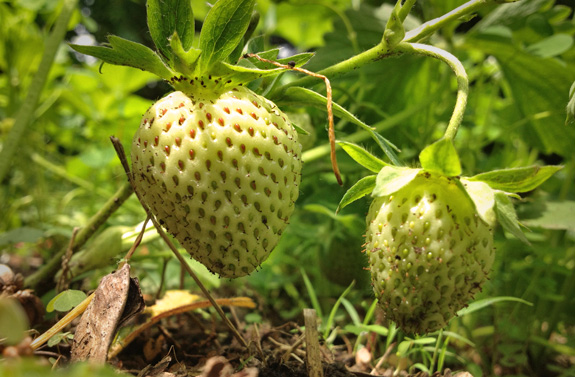About mid-way through March of this year, I decided I would like to try reading one of those daily Bibles. I had been dabbling in reading some of the Old Testament, which I had not done for a while, and I figured what better way than to read through it in manageable, daily selections?
 I had used one of these Bible-reading plans a couple decades back and I remembered enjoying the experience. One of the really interesting parts was that the text was organized in chronological order. This takes you through the Bible as it was actually happening in time, rather than the order of the books in the Bible. It ends up being similar, but as you read through chronologically, with sections from different books being read side by side, the story unfolds a bit more naturally, and it’s also interesting to read the multiple accounts in direct succession, seeing how the same stories are told sometimes exactly the same, sometimes slightly differently; details added or omitted. Very interesting.
I had used one of these Bible-reading plans a couple decades back and I remembered enjoying the experience. One of the really interesting parts was that the text was organized in chronological order. This takes you through the Bible as it was actually happening in time, rather than the order of the books in the Bible. It ends up being similar, but as you read through chronologically, with sections from different books being read side by side, the story unfolds a bit more naturally, and it’s also interesting to read the multiple accounts in direct succession, seeing how the same stories are told sometimes exactly the same, sometimes slightly differently; details added or omitted. Very interesting.
This time, I chose The One Year Chronological Study Bible (New Living Translation) as I enjoy that translation, and decided to try something different. I have not been disappointed. Perhaps my favorite part is that this is a “study Bible”. There are many helpful study tools, including addition of historical context in places, and I’ve found the notes to be the most interesting. There are copious notes on words and phrases detailing other possible translations, where each came from (Hebrew, Greek, which manuscripts, etc.), and sometimes, “the meaning of the Hebrew here is unknown”. Sometimes, you just don’t know!
While all of this is very interesting, this free advertising for Tyndale House Publishers is not my reason for writing today. 🙂
The end of September is where the reader reaches the New Testament. Jesus. The fullness of God’s story. It amazes me how much of the history of God’s people (Israel) points the way to Jesus. But when you read through all of it in order, in a way traveling through the whole story with them, you see hints of God’s whole plan throughout time.
Everything points to Jesus.
Long ago God spoke many times and in many ways to our ancestors through the prophets. And now in these final days, he has spoken to us through his Son. God promised everything to the Son as an inheritance, and through the Son he created the universe. The Son radiates God’s own glory and expresses the very character of God, and he sustains everything by the mighty power of his command. 1
And:
Christ is the visible image of the invisible God.
He existed before anything was created and is supreme over all creation,
for through him God created everything
in the heavenly realms and on earth.
He made the things we can see
and the things we can’t see—
such as thrones, kingdoms, rulers, and authorities in the unseen world.
Everything was created through him and for him.
He existed before anything else,
and he holds all creation together.
Christ is also the head of the church,
which is his body.
He is the beginning,
supreme over all who rise from the dead.[f]
So he is first in everything.
For God in all his fullness
was pleased to live in Christ,
and through him God reconciled
everything to himself.
He made peace with everything in heaven and on earth by means of Christ’s blood on the cross. 2
When Jesus arrives in the story, the tone of everything changes. God is here. And he’s different than we imagined. But exactly as he said he would be, and in some ways, exactly as we knew him to be.
You know how when you read a good book, you’re drawn into the story, almost into the world of that story, and you are eager for more … to see where it’s going, where it will end. That’s how I’ve felt during this experience, and I am eager to read again Jesus’ words and his actions and to see in them the fulfillment of everything in the grand scope of God’s Story.
His story.
Perhaps you think of reading the Bible as drab, dull, boring, a chore, monotonous—especially if you’ve read it many times, “I’ve already read this many times“. First, I would counter that and say that, at least in the Old Testament, you can not really say that it is boring. The Bible is definitely not for children. The stories of who we are… I’d say are rated at least PG-13!
Not to say that long genealogies and lists of numbers of people by family is not in there… it is. But if you can allow for those sections, it’s hard to call the Bible as a whole, “boring”.
In the journey through this incredible book of books3 you’ll hear God’s plan for and invitation to you. The Bible really is about God’s desire to be with his people, culminating in Jesus, who will ultimately make all things new (see Romans 8).
So grab a copy, and read along—maybe plan to start next January 1st.
Now, if you’ll excuse me, I have some reading to do…
- Hebrews 1:1-3a, NLT ↩
- Colossians 1:15-20, NLT ↩
- Josh McDowell has much to say on the historical reliability of the Bible text. It’s really fascinating. There are many books, and I found this video. I encourage you to look into it more when you have time. ↩












